When living in urban areas it can seem like an impossibility to have the garden you have always dreamed of, but it is good to know there are so many options not only for small spaces, but for areas that get little to no sun! In areas that are mainly shady you have the option to grow a variety of herbs! Below is a list compiled of all the different herbs that grow well in shade.
Calendula pot marigold
Calendula is a flowering annual plant that produces colorful blooms and has multiple medicinal uses. The plant is said to stimulate the immune system. In a vegetable garden, calendula draws aphids away from valuable plants. Like most herbs, calendulas are adaptable and do not require a lot of maintenance. Their roots will often adapt to the space provided. The amazing pot marigold can be grown in containers or beds in full sun to shade conditions. As the calendula prefers cool temperatures, flowers last longer in filtered sun or shady areas.
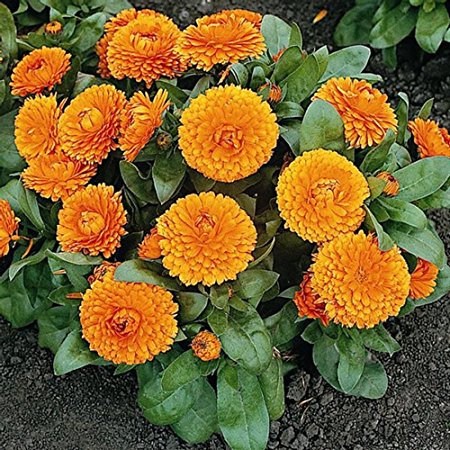 Get Calendula seeds here on Amazon!
Get Calendula seeds here on Amazon!
Catnip
Catmint, the most famous type of which is catnip, is often grown for its beautiful ornamental properties, though feline owners may have additional motives. Catnip grows well in almost any soil, but does best in a moderately rich loam that is well-draining. It will grow acceptably in either sun or shade.
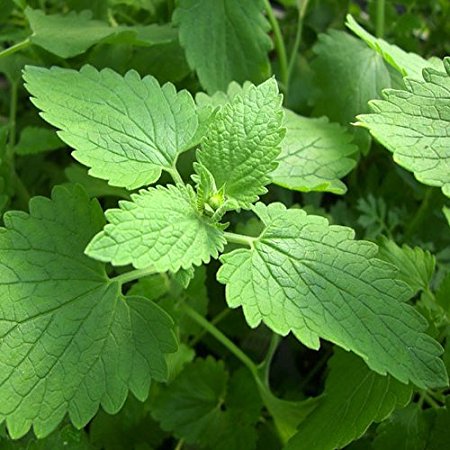 Get catnip seeds here on Amazon!
Get catnip seeds here on Amazon!
Chamomile
This delicate but surprisingly tough plant makes a popular and delicious tea, made from both its leaves and stems. Chamomile has been used as a traditional medicine for thousands of years to calm anxiety and settle stomachs. Plant chamomile in the spring from either seeds or plants. Chamomile grows best in cool conditions, should be planted in part shade, and the soil should be dry..
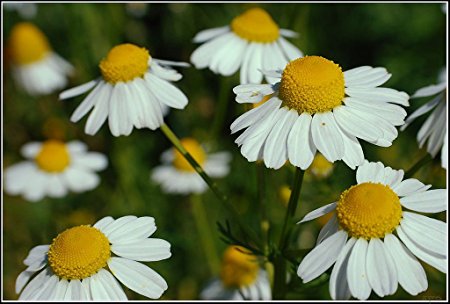 Get Chamomile seeds here on Amazon!
Get Chamomile seeds here on Amazon!
Chives
Chives are a “clumping herb,” meaning that they grow tightly packed, which makes them a great choice for small spaces. The leaves are thin and grass-like, and impart a mild, onion-like flavor. The pretty little flowers that come in purplish pink can be used as an edible garnish. Chives may aid digestion and relieve gas. Its presence may act as a deterrent to many garden pests. Rich, well-drained soil is ideal, although they can survive in less than ideal conditions too. They prefer some moisture in the soil, but water-logging should be avoided.
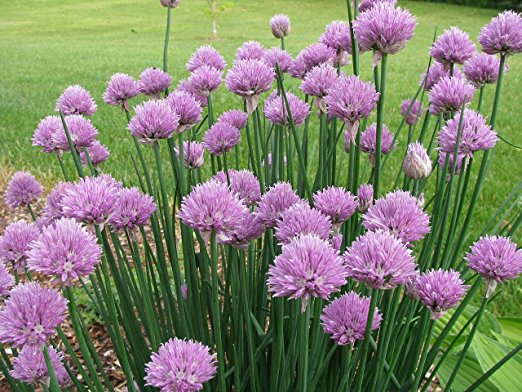 Get Chive herbs here on Amazon!
Get Chive herbs here on Amazon!
Cilantro
Coriander belongs to the same Apiaceae family as the Italian parsley, and has similar growth habits and cultural requirements. It is easily grown from seeds, and thrives in rich, moist soil. The older leaves can be harvested regularly as the plant develops more tender leaves from center of the rosette, or the entire plant can be pulled up and used finely chopped. Although it can grow in full sun where ample soil moisture is present, there is the risk of the plant bolting––or developing flower stalk that marks the end of its vegetative growth. It also results in bitter leaves. Partial shade helps maintain the taste and flavor of the herb and ensures a steady crop of larger leaves.
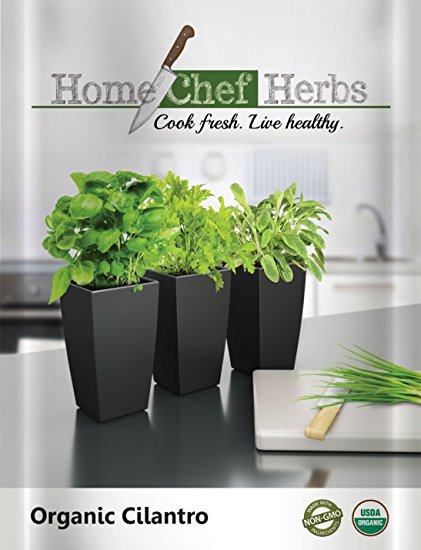 Get Cilantro seeds here on Amazon!
Get Cilantro seeds here on Amazon!
Lemon Balm
Not to be confused with its close cousin lemon verbena, lemon balm is thought by herbalists to help combat a variety of woes, including anxiety and stress. Other medicinal uses include a digestive aid if made into a tea. It can control bloating and vomiting. The calming tea relieves a headache and restlessness too. Grow lemon balm in rich, moist soil. It loves sun and warmth, but it can thrive in partial shade as well. Trim it often, especially in shady spots, to keep it from getting leggy.
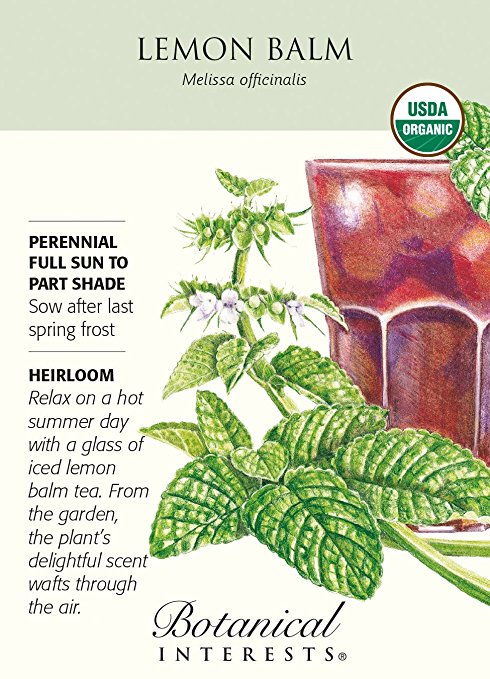 Get Lemon balm seeds here on amazon!
Get Lemon balm seeds here on amazon!
Mint
Mint is one of the best choices for a shady spot. Mint is a hardy perennial that will spread quickly if left untended. Great for teas and cooking!
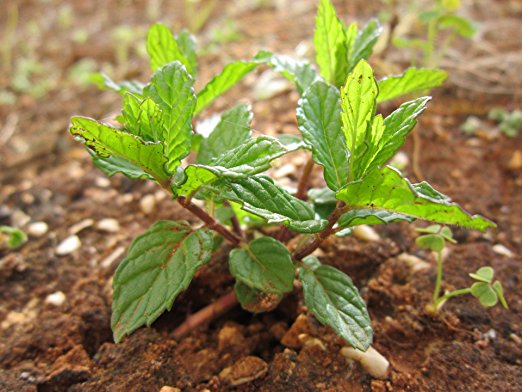 Get Mint seeds here on Amazon!
Get Mint seeds here on Amazon!
Oregano
Another easy-to-grow perennial, oregano is a popular herb that finds a home in numerous Italian, Mexican, and Spanish dishes. Oregano can fry under the sun, so it does best in partial shade.
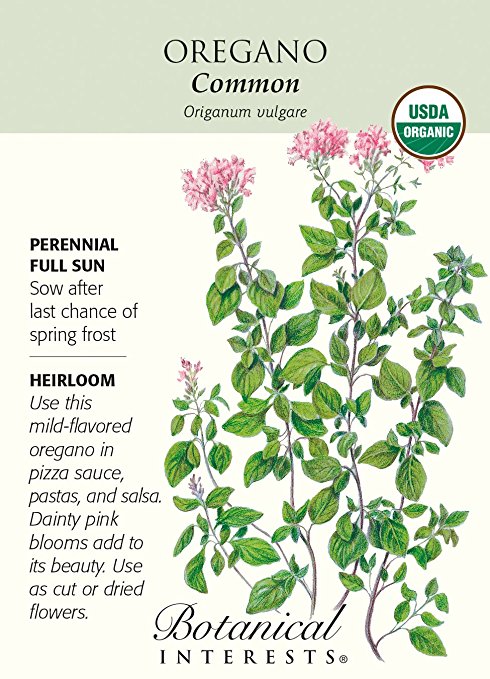 Get Oregano seeds here on Amazon!
Get Oregano seeds here on Amazon!
Parsley
It is a biennial plant that grows a rosette of leaves in the first year and sends up a flower stalk the following year. However, it is often grown as an annual, with the leaves or the entire plant harvested for the table in the first year itself. The root can be used as a vegetable in stews and soups. The leaves act as a breath freshener when chewed. A poultice of the leaves can be applied to insect bites and bruises for pain relief. Parsley needs moist soil rich in organic matter to do its best. Although it can grow in full sun, light shade is better for the lush growth of the leaves. Parsley prefers a temperature range of 70 to 85. However, it is very cold hardy, remaining green even in freezing temperatures.
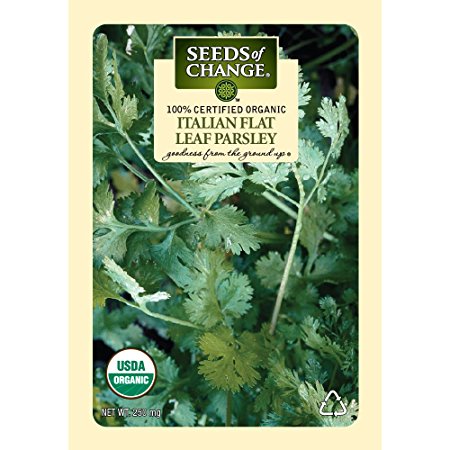 Get Parsley seeds here on Amazon!
Get Parsley seeds here on Amazon!
Thyme
Thyme grows well almost anywhere, and can be cultivated as a perennial It can survive drought and light freezes, but requires some protection in winter. It does well in sunny locations, but prefers some shade, especially in warmer areas. It forms a neat ground cover around the bases of trees in the garden, enjoying the shade. f you start with a sprig planted in spring, it will soon spread to form an aromatic carpet, providing you with more herb than you can use up. But the leaves can be frozen or dried for winter use. Frequent pruning keeps the plants healthy and green.
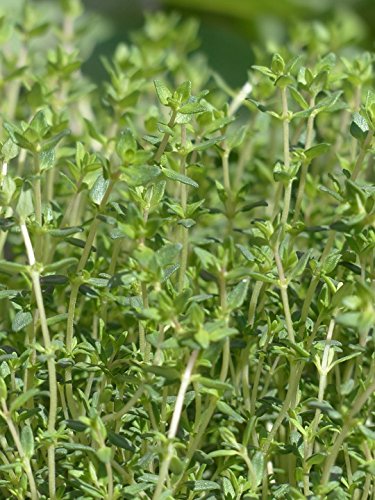 Get Thyme seeds here on Amazon!
Get Thyme seeds here on Amazon!
Do not be discouraged with your space and conditions work with it and plant what is known to thrive in sunless conditions!

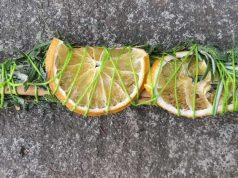


Thank you Hailey… You did the research for me ! You’re putting out some great info…keep it up !!🌐